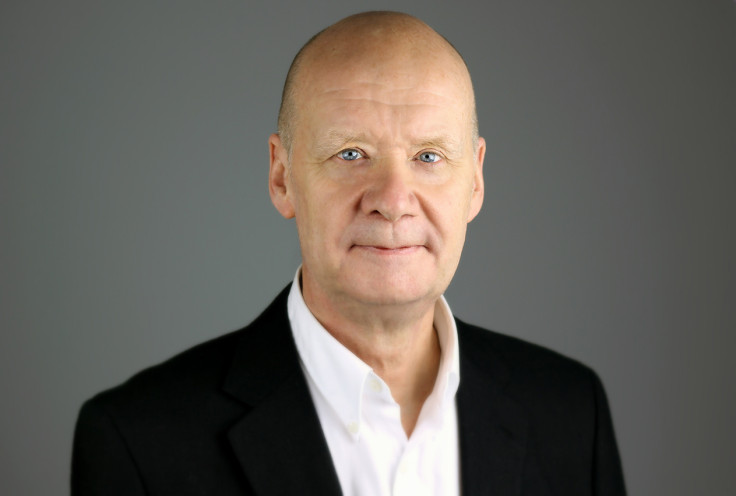The secrets to happiness according to a Taoist monk
IBTimes UK speaks to Taoist monk and therapist David James Lees about what holds us back from achieving happiness.

Whether it's the start of a new year or a new week, we humans love setting ourselves targets. And the end goal of hauling ourselves out of bed early to hit the gym or spending less time scrolling on our phones and more time reading? Happiness.
Although most of us want to achieve happiness, it can be hard to measure. And some seem to find it harder than others. The UK, for instance, ranks 19th on the UN's happiest countries list, well behind winner Norway.
So what are we getting wrong? To find some answers we turned to ordained Taoist monk, therapist, meditation teacher and all-round happy guy David James Lee.
He first turned to ancient Taoist teachings as a teenager, when he used meditation to overcome his debilitating stutter. After pursuing a career as a professional footballer and later a media executive, he has since turned his attention to helping others.
What are some of the most important lessons you have learnt about happiness during your career?
The most important lesson is that happiness is a feeling that you create. This feeling can't be bought, and it can't be given or taken away by someone else.
It is therefore essential that you take full self-responsibility for generating this positive feeling. It also follows that, if you are unhappy, you need to give attention to understanding why this is and what you can do about it.
In my experience as a therapist and coach, many people believe that it is better to be "right" or "perfect" rather than to be happy. I also work with many clients who stubbornly hold onto past injustices and carry with them a sense of righteous indignation. These kinds of rigid and blocked ways of thinking are a significant barrier to happiness.
By changing any old beliefs and ways of thinking that no longer serve you well (and may never have helped you) you create space for happiness to enter.

What is the biggest mistake people make when trying to be happy?
Often people fall into the trap of constantly comparing, criticising or being judgemental about themselves or other people, both in their personal life or career. The Taoists teach that this takes your eyes off your authentic path.
Comparing, criticising and being judgemental will move you away from a state of 'flow', where you are you most at ease, creative, productive, expansive and vibrant, and instead places you on what I call the carousel of despair, where only feelings of frustration, dissatisfaction and unhappiness are found.
When you experience these uncomfortable emotions or 'red-light feelings' they are warning you that you have fallen for the mind's tricks and illusions and its insatiable desire to be special, perfect or better than others.
A mantra I teach my clients is: "what other people think of me is none of my business". Once you stop caring about what other people think about you this will transform your life.
Can material possessions ever make us happy?
The important question here is: "what do material possessions offer me?"
Are they for personal validation, a status boost or one-upmanship with your neighbour, friend, colleague or the'faceless jury of people who you believe may be judging you? Or do they serve a genuine practical use or benefit for the well-being of you and your family? And can you actually afford them?
It is not the case that all material belongings are "bad" or hollow trophies. The lesson here is about appropriateness.
How can we harness the technology like social media to make us happier rather than more miserable?
It can certainly feed the mind's predilection for comparing, criticising and judging. So, in fact, this is a problem of the mind rather than technology or social media.
Social media and other online forums should be used as a helpful resource. You can be positively inspired or motivated by the narrative and opinions of others but use this as a tool for personal self-enquiry, rather than copying or following without question. Be open and flexible to new ideas and ways of thinking offered by technology but always be discerning and value your own insights and experience.
Is having a life plan a good idea?
Yes, so long as you don't try to stick rigidly to it. Flexibility and the capacity to effortlessly adapt to the unexpected or seize new opportunities are also essential skills. Remember, the Chinese word for 'crisis' is the same as 'opportunity'.
How can we get over self-sabotage?
Self-sabotage, as manifested through your inner self-talk and actions (or inaction), is essentially a choice.
A habit of self-sabotaging is just a choice that you keep repeating but it is no less within your control. You always have a choice to do things differently. So, it makes sense to first understand what is motivating your choice to self-sabotage.
In my 40 years of professional therapy experience I have identified what I refer to as 'the three lies' that reside within the misguided core-beliefs of all my clients:
Lie 1: I'm not good enough
Lie 2: I can't cope / I can't manage
Lie 3: I'm unlovable / I'm not worthy
If you have any or all three of these 'lies' in place, then your mind will encourage you to self-sabotage as a defence strategy. The mind wants you to avoid the situations or people that will trigger these pain points. It wants to keep you safe. But this will never work.
If you can do the deeper self-enquiry work to root out, own and deconstruct these harmful core-beliefs or 'lies' and then replace them with a set of realistic and healthy beliefs that reflect the 'authentic' you, then your mindset, self-talk and actions will naturally respond and harmonise to a more balanced and truthful way of being.
This interview has been edited for brevity






















